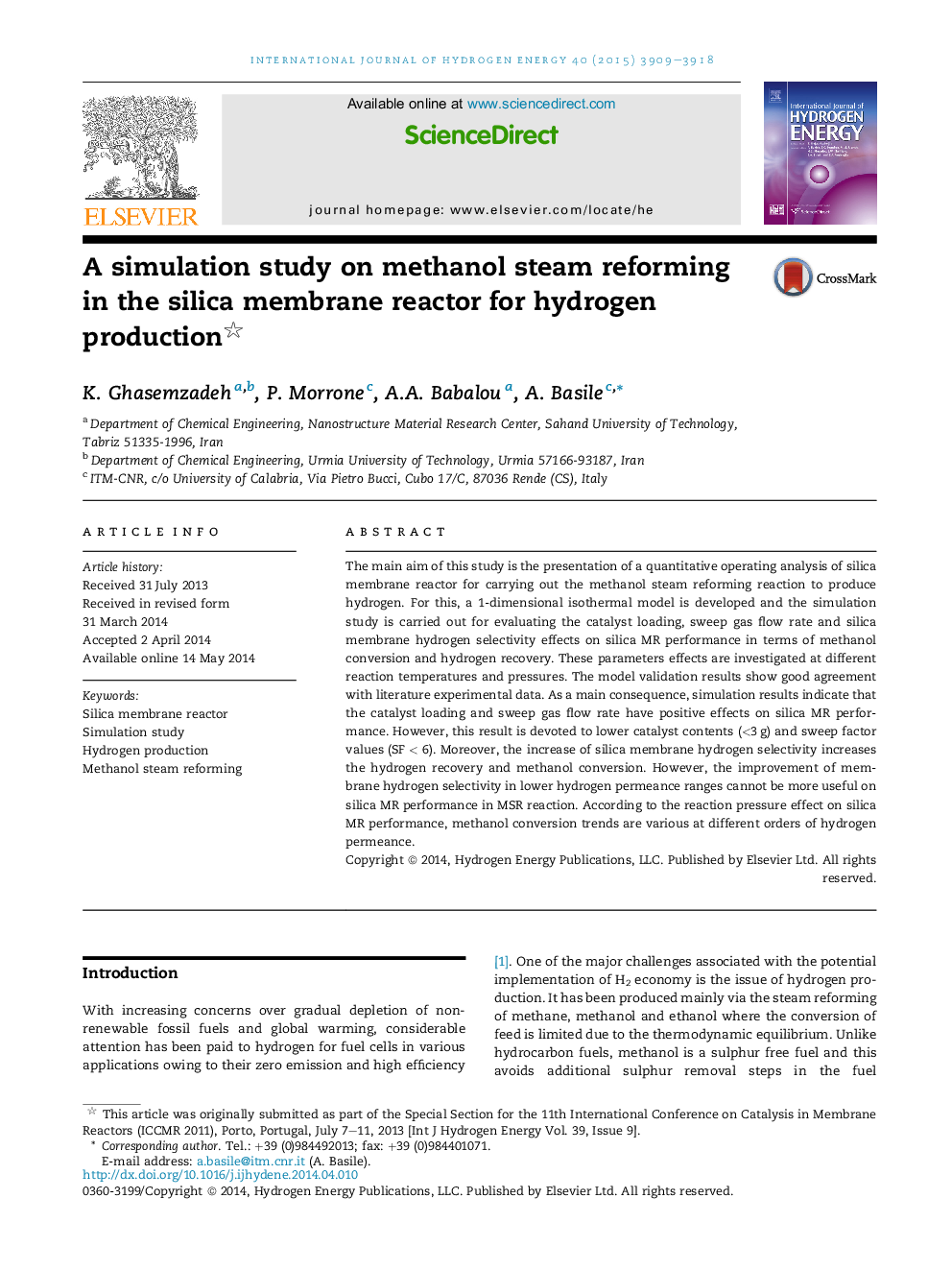| Article ID | Journal | Published Year | Pages | File Type |
|---|---|---|---|---|
| 1275818 | International Journal of Hydrogen Energy | 2015 | 10 Pages |
•The methanol steam reforming was investigated in the silica MR by modelling method.•MR performance was analysed by varying the critical parameters for H2 production.•Membrane selectivity effect was studied at different orders of hydrogen permeance.
The main aim of this study is the presentation of a quantitative operating analysis of silica membrane reactor for carrying out the methanol steam reforming reaction to produce hydrogen. For this, a 1-dimensional isothermal model is developed and the simulation study is carried out for evaluating the catalyst loading, sweep gas flow rate and silica membrane hydrogen selectivity effects on silica MR performance in terms of methanol conversion and hydrogen recovery. These parameters effects are investigated at different reaction temperatures and pressures. The model validation results show good agreement with literature experimental data. As a main consequence, simulation results indicate that the catalyst loading and sweep gas flow rate have positive effects on silica MR performance. However, this result is devoted to lower catalyst contents (<3 g) and sweep factor values (SF < 6). Moreover, the increase of silica membrane hydrogen selectivity increases the hydrogen recovery and methanol conversion. However, the improvement of membrane hydrogen selectivity in lower hydrogen permeance ranges cannot be more useful on silica MR performance in MSR reaction. According to the reaction pressure effect on silica MR performance, methanol conversion trends are various at different orders of hydrogen permeance.
